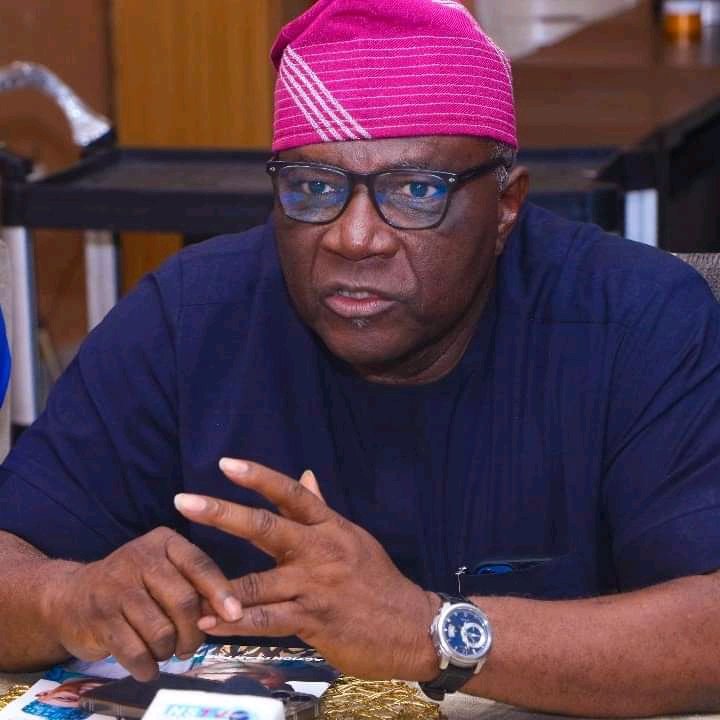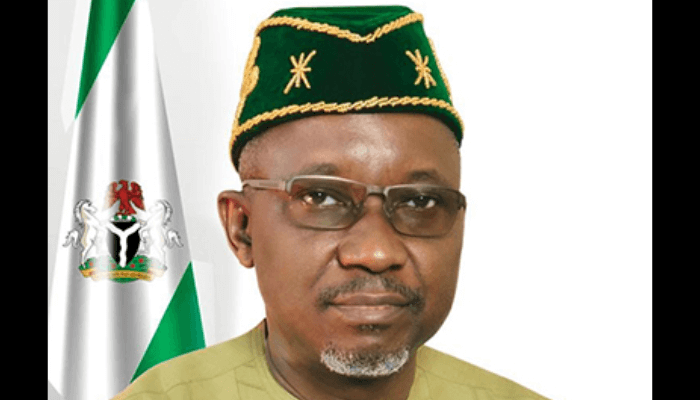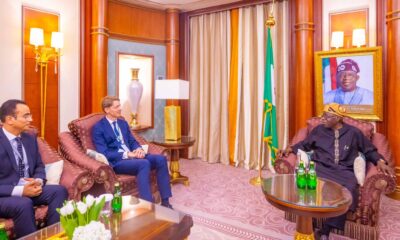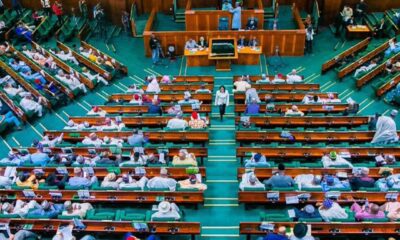Energy
Electricity tariff hike: FG to save N1.5trn in 2024

Following the recent hike in electricity tariff for Band A customers, the federal government has stated that it would save N1.5trillion from the exercise in 2024.
It also stated that about 2.5 million meters would be installed this year and in the next five years to bridge the metering gap across the country and ensure consumers pay the right amount for electricity.
On April 2, 2024, the Special Adviser to the President on Information and Strategy, Bayo Onanuga, stated that the move by the government to withdraw electricity subsidy from 15 percent of power consumers in Nigeria would save the government about N1.1trillion annually.
Onanuga had said the President Bola Tinubu-led administration was poised to allow the price hike in electricity given its N450 billion budget for energy subsidies in 2024. c
But in a document on issues around the tariff hike, from the Federal Ministry of Power on Wednesday, which was made available by the media aide to the power minister, Bolaji Tunji, the government said it would save N1.5 trillion with the recent tariff adjustment.
It said, “FG (Federal Government) to save N1.5trillion with tariff adjustment. FG still subsidising Bands below A. Pricing change will help improve liquidity to the NESI (Nigeria Electricity Supply Industry). Discos (power distribution companies) will be sanctioned for supplying less than 20 hours to Band A consumers.”
Last week, manufacturers and the organised labour had kicked against the hike in tariff payable by about 1.9 million consumers, which was approved and announced by the federal government on April 3, 2024.
Subsidy on electricity was withdrawn completely from the tariff of consumers on the Band A category, which constitute about 15 percent of the total 12.82 million power consumers across the country.
The government announced the hike in electricity tariff at a press briefing in Abuja by the Nigeria Electricity Regulatory Commission (NERC), adding that those affected would pay N225 per kilowatt-hour, up from the previous rate of N68/kWh, representing about 240 percent increase.
The government stated that the decision took effect on April 3, 2024, adding that Band A customers would enjoy up to 20 hours of power supply daily. However, there were several oppositions against the increase in tariff.
Meanwhile, the Power Ministry stated on Wednesday that the target of the Federal Government was to meter about 2.5 million unmetered power users across the country annually.
“The Presidential Meter Initiative aims to install a minimum of 2 – 2.5 million meters yearly within the next five years,” it stated.
A September 2023 report by NERC showed that out of the total 12,825,005 registered electricity customers in Nigeria, only 5,707,838 had meters, indicating that over 7.1 million registered customers were still subjected to the estimated billing system.
To close this gap, the Federal Government established the Presidential Metering Initiative, which was announced by the Minister of Power, Adebayo Adelabu, at a briefing in Abuja.
Adelabu had put the metering shortfall at about eight million, but stressed that the Federal Government was committed to eliminating estimated billing by the end of 2024 and close the gap within the space of three to five years, through the new initiative.
“Citizens are tired of estimated billing because it always leads to cheating between consumers, staff and company. Before the end of this year, we are looking at the possibility of ending estimated billing because we want transparency and objectivity in our billing system.
“We have up to eight million metering gap in Nigeria and what the initiative seeks to achieve is to close this gap within three to five years. This means that an average of two million meters are required on a yearly basis and achieving the target is compulsory for citizens to enjoy stable power supply,” the Minister stated.
Energy
We need consultation, public hearing to review PIA regulations – NMDPRA


The Nigerian Midstream and Downstream Petroleum Regulation Authority (NMDPRA) says consultation with stakeholders and public hearing must be conducted to review proposed draft regulations of the Petroleum Industry Act (PIA).
The Authority’s Chief Executive, NMDPRA, Mr Farouk Ahmed, said this on Tuesday in Abuja at its stakeholder’s forum on Midstream Petroleum Host Community Development Trust (MPHCDT) regulation.
Ahmed, represented by Mr Ogbugo Ukoha, Executive Director, Distribution Systems, Storage and Retailing Infrastructure, NMDPRA, said consultation was necessary to provide a platform for harnessing ideas for the HCDT implementation.
“The regulation shall apply only to the Midstream Petroleum Host Communities and a holder of a license that is engaged in the midstream petroleum operation in accordance with Section 318 of the PIA.
“This is a platform for us to deliberate and get feedback on the draft regulations that we publish,” he said.
In an overview, Dr Joseph Tolorunse, the Authority’s Secretary and Legal Adviser, said the NMDPRA may by notice designate the facilities to which these regulations shall apply in accordance with the PIA.
He listed the objectives of the regulations to include the procedure for the establishment and administration of the Trust Fund for the midstream petroleum host communities and to establish parameters to safeguard the Trust Fund.
According to him, the regulation would also establish grievance resolution mechanism for the settlement of disputes between the host communities and licensees.
“The regulation will make general rules for the implementation of the development of the midstream petroleum host communities. It is expected to promote social and economic benefits from petroleum operations to the host communities.
“It will enhance peaceful and harmonious co-existence between the licensees, lessees and the host communities, as well as curtail pipeline vandalism and increase oil production,” he said.
Also speaking, Chairman, House Committee on Host Communities, Dounamene Dekor, said the committee had carried out a series of engagements to understand the current status of implementation of benefits to host communities.
He urged the Authority to expedite action to apply proactive and innovative mechanisms that would ensure the speedy and effective operationalisation of funding of host communities in the sector.
“We have noted some of the challenges that the authorities face in the implementation of the PIA, particularly the omission of the mainstream petroleum operations in Section 240-2 that provides for the funding of HCPs.
“Our committee is ready and already taking necessary legislative steps to address these gaps and challenges,” he assured.
Energy
Ekpo highlights pivotal role of LPG in industrialisation, job creation


Minister of State Petroleum Resources (Gas), Rt. Hon. Ekperikpe Ekpo, has emphasised the strategic importance of investment in the gas sector, saying it was pivotal for driving industrialization, job creation and improvement of the livelihood of the generality of Nigerians.
The Minister stated this at the groundbreaking ceremony of Windek Energy Limited 20,000 Metric Tonnes (MT) Liquefied Petroleum Gas (LPG) depot project at Atabrikang, Aquaha in Ibeno Local Government Area, Akwa Ibom State at the weekend.
He lauded the vision and commitment of Windek Energy Limited in Nigeria’s journey towards energy security and economic prosperity.
A statement by the Spokesman to the Minister, Louis Ibah, which quoted Ekpo, said the project would boost ongoing efforts in ensuring affordable supply of LPG, commonly known as cooking gas, to Nigerians.
“This project marks a significant milestone in Nigeria’s journey towards energy security and economic prosperity. It will enhance access to clean and affordable cooking fuel,” the Minister said.
Ekpo thanked the Akwa Ibom State government for providing the enabling environment for investments to thrive.
He underscored the fact that the establishment of the LPG depot was a testament to the fruitful collaboration between the public and private sectors in the state.
The Gas Minister said the LPG depot project holds immense promises, not only for Akwa Ibom people, but for the entire nation.
Akwa Ibom State Governor, Pastor Umo Eno, in his speech thanked the Minister of State Petroleum Resources Gas, Ekperikpe Ekpo, for facilitating the establishment of the gas plant in the state.
Eno, represented by the Deputy Governor, Senator Akon Eyakenyi, also assured Ekpo and the management of Windek Energy Limited of the security of contractors and staff, as well as the support and collaboration of the host community in bringing the project to fruition.
MD/CEO, Windek Energy Limited, Mrs. Nosa Okunbor, said the project holds the prospect of stimulating economic growth, fostering innovation, and facilitating the emergence of new industries and value chains within Akwa Ibom State.
“This project is not just about enhancing energy infrastructure, but about enhancing life such that our mothers will cook without hazards to their health,” she said.
Energy
Nigeria to produce 4,000 metric tonnes of lithium per day – Shettima


Nigeria is poised to produce 4,000 tonnes of lithium per day, Vice-President Kashim Shettima, said on Monday in Abuja.
Declaring open a two-day roundtable on Sustainable Development of Nigeria’s Mining Sector, Shettima said President Bola Tinubu would soon inaugurate Nigeria‘s largest lithium factory capable of processing 4,000 metric tonnes of lithium per day.
He noted that the Minister of Solid Minerals Development, Dr Dele Alake performed a ground-breaking ceremony for the Lithium factory in Nasarawa in 2023 to produce 18,000 metric tonnes of lithium per day.
Shettima said that more lithium sites were being discovered across the country.
Lithium is a soft, silvery-white alkali metal. It is the least dense solid element and is a critical solid mineral in the global energy transition.
It is currently mined in Nasarawa, Kogi, Kwara, Ekiti and Cross River states.
The vice-president commended Alake for the reforms he had brought to the solid minerals sector particularly his plan to sanitise and reposition the sector to boost Nigeria’s economic profile.
He also commended the Minister for making the sector public and private sectors-driven, adding that the approach would open up the sector for opportunities and fast-track its development.
Shettima was represented at the roundtable by Nasarawa’s Gov. Abdullahi Sule,
Speaking at the event, Alake said the ministry’s seven-point agenda was in line with President Tinubu’s commitment to diversify Nigeria’s economy.
He said that one of the ministry’s critical seven-point agenda was the emphasis placed on local value addition through policies that promoted the processing of raw minerals because of the economic multiplier effects.
He thanked the National Institute for Policy and Strategic Studies (NIPSS) Kuru, near Jos, for organising the summit.
Alake said the development of the solid minerals sector required collective responsibility by all stakeholders to make it a key contributor to the national economy.
He noted that the roundtable would enrich the analysis of the sector and its recommendations would guide the Executive arm of government in decision-making.
“NIPSS deserves commendation for prioritising the mining sector and in appreciating the strategic value the president placed on diversifying the nation’s economy,” he said.
Alake said also that a dual-pronged approach, combining coercive and persuasive methods, was employed to combat illegal mining and to attract foreign direct investment to the sector.
He explained that the persuasive measure entailed formalising artisanal and illegal miners into cooperatives and that 150 of such cooperatives had been registered so far.
The minister said the coercive method involved the establishment of a Mining Marshal Corps deployed across the country to secure mining environments.
He stressed the importance of geoscience data in providing investors with information on the location and quantity of minerals, among others, to help them to “de-risk” investments.
Alake said that a preliminary survey by a German company revealed an estimated 750 billion dollars’ worth of solid minerals in the belly of Nigeria.
Earlier, the Director-General of NIPSS, Prof. Ayo Omotayo, said the roundtable aimed at charting a way forward to deliver a diversified economy and to formulate policies to advance the mining sector.
NIPPS organised the roundtable in collaboration with a consulting firm.
-
capital market2 years ago
Rt.briscoe, FBNH, Others halts negative performance of stock market
-
Finance3 months ago
Court orders Sen. Victor Umeh to repay N136m bank debt to AMCON
-



 Abuja Update2 months ago
Abuja Update2 months agoUNDP, FG partnership needed to achieve inclusion, equity- Minister
-
Abuja Update1 month ago
Banks drive stock market performance with N147bn gain
-



 Business1 week ago
Business1 week agoTingo Group unveils Tingo Electric, Tingo Cola drink at Lagos launch
-



 Health2 weeks ago
Health2 weeks agoCapacity training will reduce migration of health workers- NPHCDA
-
News4 months ago
Oil thieves sponsoring malicious media campaign against Navy – Spokesman
-



 Infotech1 month ago
Infotech1 month agoWorld Backup Day: NITDA urges Nigerians to ensure backup of data
















